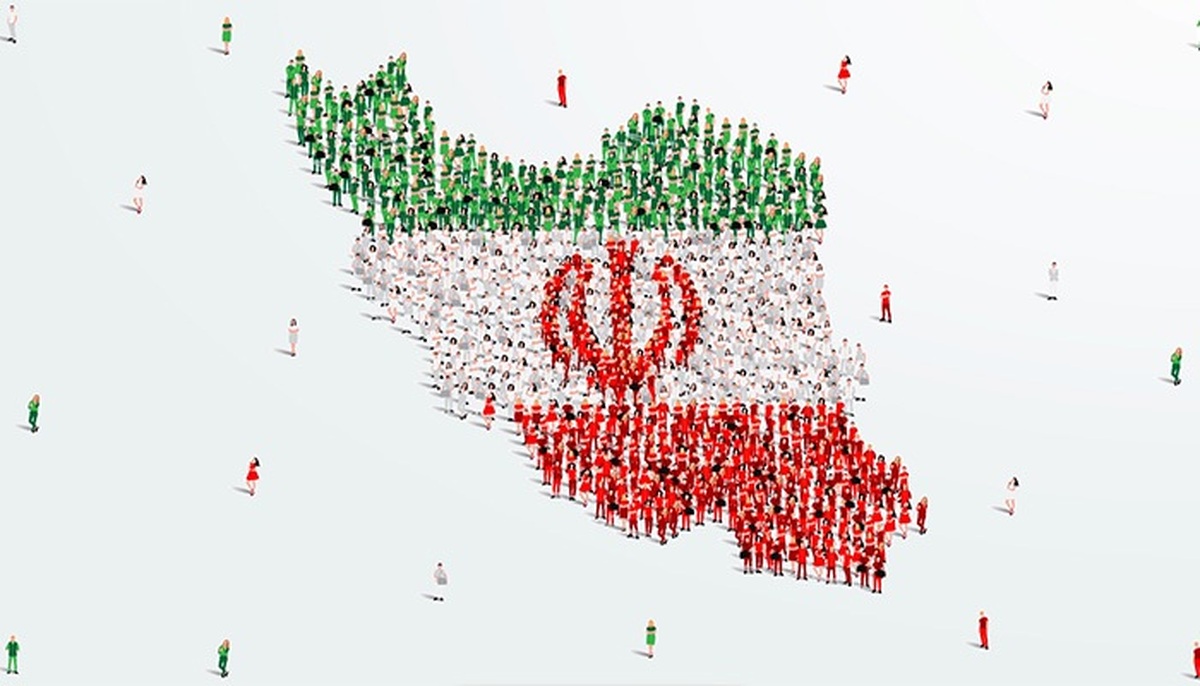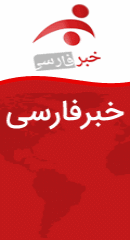در بحبوحه آتش و جنگ روانی پیش رو

گروه بین الملل: متن حاضر، مناظرهای صریح میان دو رزمنده درباره سیاستهای منطقهای و بینالمللی ایران است. این گفتگو که در بحبوحه یک جنگ روانی شکل میگیرد، به تحلیل ریشهای مسائل مهمی چون بیعملی شرکای راهبردی (چین و روسیه)، کارایی حقوق بینالملل، و هزینه-فایده سیاست «حضور در منطقه» میپردازد.
به گزارش بولتن نیوزیکی از طرفین، مقاومت و تقابل با نظم موجود جهانی را یک مرحله تاریخی و اجتنابناپذیر برای قدرتمند شدن ایران تلقی میکند، در حالی که دیگری این رویکرد را اشتباهی راهبردی میداند که منابع کشور را هدر داده و ایران را از مسیر دیپلماسی دور کرده است. این مجادله، نمودی از پرسش بزرگ جامعه امروز ایران است: مرزهای امنیت ملی کجاست و هزینه تأمین آن چقدر باید باشد؟
رزمنده اول: در خصوص اخباری که پیشتر به آن اشاره کرده بودید، موضوع چه بود؟
رزمنده دوم: موضوع، شایعه حمله به تهران بود. البته فعلاً خبری نیست، اما چنین شایعهای منتشر شده بود.
رزمنده اول: درشرایط فعلی، شاهد یک جنگ روانی هستیم. نخبگان باید هوشیار باشند و جامعه را آرام نگه دارند. ما نباید ناخواسته در راهبرد دشمن ایفای نقش کنیم. وظیفه ما آرامسازی جامعه است و نظامیان نیز با احتیاط و تدبیر، آماده هستند.
رزمنده دوم: هدف من ایجاد نگرانی نبود، بلکه اطلاع از این شایعات برای کسب آمادگی است. باید برای هر سناریویی آماده بود.
رزمنده اول: منظور شخص شما نبودید. این تحلیل ناظر بر یک جریان کلی است. شاهد بودیم و هستیم این شایعات امروزه از طریق دوستان و دشمنان. ستون پنجم اخیرا دامن زده وموجب نگرانی جامعه شده.
رزمنده دوم: شرکای راهبردی ما نیز نه تنها کمکی نکردهاند، بلکه شاهد خروج پرسنل فنی چین و بیعملی روسیه بودهایم.
رزمنده اول: این دقیقاً همان نکتهای است که در گذشته تحت عنوان راهبرد «نه شرقی، نه غربی» مطرح میشد.
رزمنده دوم: این روابط سودمند و قابل اتکا نیستند.
رزمنده اول: کسی بر روی چنین حمایتهایی حساب نکرده بود. با این حال، به نظر من عدم حمایت علنی آنها در شرایط فعلی، با کاهش حساسیتهای بینالمللی، میتواند به نفع ما باشد. طبق گزارشهای سیاست خارجی آمریکا، ایران پس از چین و روسیه، خطر چهارم محسوب میشود. لذا عدم حمایت آنها، ما را کمتر در کانون توجه قرار میدهد.
رزمنده دوم: این تحلیل بیش از حد خوشبینانه است. چین تمایلی به درگیری با اسرائیل و آمریکا ندارد و با هر دو شریک استراتژیک است. نباید فراموش کرد که روسیه نیز اعلام کرده سیاستهایش تحت تأثیر جمعیت دو میلیونی روستبار در اسرائیل است.
رزمنده اول: اما سیاست تعریفشده جهانی چین، مبتنی بر تغییر نظم فعلی جهانی و ظهور ابرقدرتهای جدید است و این ساختار ایجاب میکند که ایران نباید شکست بخورد. منافع کلان آنها در گرو این معادله است، هرچند منافع مادی روزمرهشان با آمریکا و اعراب نیز تأمین میشود. موضوع چندوجهی و پیچیده است.
رزمنده اول: اگر این گفتگو ثبت شود، آینده خود بهترین داور خواهد بود. این مجادله میان دیدگاه نظری شما و دیدگاه عملی و میدانی من است.
رزمنده اول: بهعنوان یک رزمنده دفاع مقدس، چرا در جنگ شرکت کردید؟ آیا سازمانهای بینالمللی مانع صدام شدند؟ اکنون نیز هفتاد سال است که همین سازمانها مانع حمله و اشغال فلسطین نشدهاند.
رزمنده اول: هفتاد سال است که «اجماع جهانی» خواسته که مانع آنها شود و نتیجه این بوده که اشغالگری گسترش یافته و صدها هزار فلسطینی، لبنانی، سوری، عراقی و ایرانی کشته شدهاند. آنچه «حقوق بینالملل» مینامید، محصول سیاست آکادمیک ۷۵ ساله غرب است.
برای تعریف قدرت و قرار گرفتن در جمع ده کشور برتر، طی این مرحله گریزناپذیر است. مقاومت، در حقیقت، پرهیز از اعطای سهم به نظم جهانی موجود است و طعم تلخی دارد. این فرآیند مانند یک واکسیناسیون عمل میکند، همانطور که هشت سال دفاع مقدس ما را تا سطحی واکسینه کرد.
رزمنده دوم: آیا شما توانایی خرید کل شهر تهران را دارید، حتی اگر اراده آن را داشته باشید؟
رزمنده اول: البته که نه.
رزمنده دوم: ما اساساً ظرفیت و منابع لازم برای چنین تمایلاتی را نداریم.
رزمنده اول: دقیقاً بر همین اساس باید میان اهداف و منابع در سیاست خارجی تناسب برقرار کرد. رهبری فرمودند اسرائیل ۲۵ سال آینده را نخواهد دید، اما این به معنای آن نیست که ما امروز قصدنابودی فیزیکی اسرائیل را داریم؛ چرا که اسرائیل معادل کل غرب و آمریکاست. برای رسیدن به هدف هفتاد، باید هدف صد را نشانه گرفت. در دفاع مقدس نیز هدف آزادی قدس از طریق کربلا بود؛ قدس آزاد نشد، اما امنیت ارضی و استقلال محقق شد که خود دستاوردی فوقالعاده است.
رزمنده دوم: این یک اشتباه راهبردی است. چرا باید با اسرائیل وارد جنگ شویم در حالی که خود کشور با چالشهای متعدد داخلی مواجه است؟ قرار بود در دمشق بجنگیم تا جنگ به تهران نرسد. اساساً چرا باید بجنگیم؟ آیا سیاست فقط به معنای درگیری نظامی است؟ آیا نمیتوان از طریق اجماع جهانی، اسرائیل را مجبور به پذیرش دولت فلسطینی کرد؟ ما این راه را نیازمودهایم و صرفاً بر برخورد نظامی تمرکز کردهایم.
رزمنده اول: من از تحلیل شما تعجب میکنم. این تحلیلی عوامانه است. تضعیف لبنان و سوریه، خاکریز دفاعی ما را به مرزهای خودمان نزدیک کرد. هزینههایی که در آنجا شد، از جمله شهادت دو هزار مدافع حرم، برای امنیت ما و بهای حفظ خاکریز در خارج از مرزها بود.
در حالیکه در دوازده سال دو هزار شهید مدافع با توجه به سیاست خاکریز در سوریه و لبنان تقدیم نمودیم در دوازده روز هزار شهید تقدیم کردیم و آن بدلیل تضعیف خطوط دفاعی اول است.
ــــــــــ
📰 Bras de fer stratégique : Faut-il combattre à Damas pour que Téhéran reste paisible ?
🔥 Au cœur des flammes et de la guerre psychologique qui s’annonce
Ce texte retranscrit un débat franc entre deux combattants sur les politiques régionales et internationales de l’Iran. Cette discussion, née dans un climat de tensions psychologiques, offre une analyse profonde de plusieurs enjeux cruciaux : l’inaction des partenaires stratégiques (Chine et Russie), l’efficacité du droit international et le coût-bénéfice de la politique de « présence régionale ». Tandis que l’un perçoit la résistance et l’opposition à l’ordre mondial comme une étape historique indispensable pour renforcer l’Iran, l’autre y voit une erreur stratégique, épuisant les ressources nationales et éloignant le pays d’une voie diplomatique. Ce débat reflète une question fondamentale pour la société iranienne actuelle : où se situent les frontières de la sécurité nationale, et quel en est le coût acceptable ?
🎙️Combattant 1 : À propos des informations que vous avez mentionnées plus tôt, de quoi s’agissait-il ?
Combattant 2 : Une rumeur parlait d’une attaque contre Téhéran. Rien de confirmé, mais l’information a circulé.
Combattant 1 : Nous faisons face à une guerre psychologique. Les élites doivent rester vigilantes et apaiser la société. Il ne faut pas jouer, même involontairement, selon les stratégies ennemies. Notre mission est de garder le calme, et les militaires sont prêts, avec prudence.
Combattant 2 : Mon intention n’était pas d’inquiéter, mais de rester informé pour être préparé. Il faut envisager chaque scénario.
Comb s’agissait pas de vous personnellement. Cette analyse concerne une tendance globale. Nous avons vu ces rumeurs propagées par nos amis comme nos ennemis. La cinquième colonne contribue désormais à cette inquiétude sociale.
Combattant 2 : Nos partenaires stratégiques nous ont abandonnés. Les techniciens chinois ont quitté le pays, et la Russie reste passive.
Combattant 1 : Cela rappelle notre ancienne doctrine : « Ni Est, ni Ouest ».
Combattant 2 : Ces alliances ne sont ni fiables ni bénéfiques.
Combattant 1 : Personne ne comptait sur un soutien direct. Mais leur absence pourrait jouer en notre faveur en réduisant la pression internationale. Selon Washington, l’Iran est la quatrième menace après la Chine et la Russie. Leur discrétion nous éloigne des projecteurs.
Combattant 2 : Cette lecture est trop optimiste. La Chine évite tout conflit avec Israël ou les États-Unis, ses partenaires stratégiques. N’oublions pas que la politique russe est influencée par les deux millions de Russes vivant en Israël.
Combattant 1 : Pourtant, la stratégie globale de Pékin vise à remodeler l’ordre mondial et promouvoir de nouvelles superpuissances. L’échec de l’Iran nuirait à ce projet. Même si ses intérêts économiques quotidiens lient la Chine à l’Occident, ses objectifs sont pluriels et complexes.
Combattant 1 : Si cette conversation est enregistrée, l’avenir en jugera. Ce débat oppose votre vision théorique à mon vécu sur le terrain.
Combattant 1 : En tant que vétéran de la guerre défensive, pourquoi êtes-vous allé au front ? Les organisations internationales ont-elles stoppé Saddam ? Voilà soixante-dix ans qu’elles échouent à empêcher l’occupation de la Palestine.
Combattant 1 : Cela fait sept décennies que le « consensus mondial » tente en vain de mettre fin à l’occupation, causant la mort de centaines de milliers de Palestiniens, Libanais, Syriens, Irakiens et Iraniens. Ce que vous appelez « droit international » découle de la politique académique occidentale.
🧭 Pour devenir une puissance mondiale, il faut traverser cette phase inévitable. La résistance est une manière de refuser sa place dans l’ordre établi. Certes amère, mais comparable à une vaccination — tout comme la guerre défensive de huit ans nous a en partie immunisés.
Combattant 2 : Avez-vous les moyens d’acheter la ville de Téhéran, même si vous le vouliez ?
Combattant 1 : Évidemment non.
Combattant 2 : Nous ne disposons tout simplement pas des ressources nécessaires pour de telles ambitions.
Combattant 1 : C’est précisément pourquoi il faut aligner nos objectifs politiques sur nos capacités réelles. Le Guide a dit qu’Israël ne verrait pas les 25 prochaines années, mais cela ne signifie pas sa destruction immédiate : car Israël représente l’ensemble de l’Occident. Pour atteindre l’objectif 70, il faut viser 100. Dans la guerre défensive, la libération de Jérusalem via Karbala n’a pas eu lieu — mais nous avons obtenu la sécurité territoriale et l’indépendance, ce qui est déjà un triomphe.
Combattant 2 : C’est une grave erreur stratégique. Pourquoi devrions-nous combattre Israël alors que notre pays est en proie à de multiples crises internes ? L’idée était de combattre à Damas pour éviter la guerre à Téhéran. Mais pourquoi combattre tout court ? La politique doit-elle passer uniquement par le conflit militaire ? N’existe-t-il pas de voie diplomatique permettant de contraindre Israël à accepter un État palestinien ? Nous n’avons jamais exploré cette option, nous nous sommes focalisés sur l’affrontement armé.
Combattant 1 : Votre analyse me surprend. Elle est trop simpliste. L’affaiblissement du Liban et de la Syrie a rapproché notre ligne défensive de nos frontières. Les sacrifices consentis — dont 2 000 martyrs pour défendre les sanctuaires — visaient à préserver cette ligne en dehors de nos terres.
👉 Lorsqu’en douze ans, nous avons perdu 2 000 martyrs à l’extérieur, mais que mille l’ont été en douze jours à l’intérieur, cela témoigne d’un affaiblissement préoccupant de notre première ligne défensive
ــــــــــ
📰 Strategic Showdown: Must We Fight in Damascus to Keep Tehran Calm?
🔥 Amid the blaze and impending psychological warfare
This article presents a frank debate between two combatants on Iran’s regional and international strategies. Taking place in the midst of psychological conflict, the exchange delves into critical issues such as the inaction of strategic allies (China and Russia), the effectiveness of international law, and the cost-benefit equation of Iran’s “regional presence” policy. One participant views resistance and opposition to the global order as a historic and inevitable phase in Iran’s rise to power. The other sees it as a strategic misstep that has drained national resources and diverted the country from diplomacy. This clash of visions mirrors a pressing question in Iranian society today: What are the boundaries of national security, and at what cost should it be defended?
🎙️Combatant 1: About those earlier reports you mentioned—what were they?
Combatant 2: There was a rumor circulating about a possible attack on Tehran. Nothing has happened yet, but the speculation spread.
Combatant 1: We're currently facing a psychological warfare. The elite must remain vigilant and calm the public. We shouldn't unknowingly play into the enemy’s strategy. Our job is to maintain social stability, and the military is ready with caution and insight.
Combatant 2: My goal wasn’t to alarm, but to prepare by staying informed. We must be ready for all scenarios.
Combatant 1: I wasn’t referring to you personally. This analysis reflects a broader trend. These rumors have been spread by both friends and foes. The fifth column has recently stirred unrest.
Combatant 2: Our strategic partners have failed to help. Chinese technical personnel have left, and Russia has remained inactive.
Combatant 1: This is exactly what was addressed in the old doctrine of “neither East nor West.”
Combatant 2: These partnerships are unreliable and not truly beneficial.
Combatant 1: No one was counting on direct support. That said, their refusal to take sides may actually benefit us by reducing international sensitivity. According to U.S. foreign policy reports, Iran is the fourth major threat after China and Russia. Their silence puts us less in the spotlight.
Combatant 2: That analysis is overly optimistic. China doesn’t want conflict with Israel or the U.S.—it partners with both. And let’s not forget, Russia has publicly said its policies are influenced by the two million Russians living in Israel.
Combatant 1: But China’s global strategy is centered on reshaping the current world order and ushering in new superpowers. That framework relies on Iran not falling. Their long-term interests are tied to that equation, even if their day-to-day material gains come from ties with the U.S. and Arab states. It’s a multi-layered and complex matter.
Combatant 1: If this conversation is recorded, the future will be the ultimate judge. This is a clash between your theoretical perspective and my practical field experience.
Combatant 1: As a veteran of the Sacred Defense, why did you fight? Did international organizations stop Saddam? Now, for seventy years, those same institutions have failed to prevent the occupation of Palestine.
Combatant 1: For seven decades, the so-called “global consensus” has failed to prevent expansionism—resulting in hundreds of thousands of deaths across Palestine, Lebanon, Syria, Iraq, and Iran. What you call “international law” is essentially a product of seventy-five years of Western academic policy.
🧭 To define power and join the top ten nations, going through this phase is unavoidable. Resistance is essentially a refusal to accept the status quo. It tastes bitter but acts like a vaccine—just as our eight-year Sacred Defense partially immunized us.
Combatant 2: Do you have the means to buy all of Tehran, even if you wanted to?
Combatant 1: Of course not.
Combatant 2: Then we clearly lack the resources for such ambitions.
Combatant 1: Which is exactly why our foreign policy goals must match our capabilities. The Supreme Leader said Israel won’t see the next 25 years—but that doesn’t mean we aim for its physical destruction today; Israel is equivalent to the entire West and the United States. To reach goal seventy, we must aim for one hundred. During the Sacred Defense, the liberation of Jerusalem through Karbala was never achieved—but we did gain territorial security and independence, a tremendous achievement.
Combatant 2: That’s a strategic mistake. Why should we fight Israel while our country faces internal challenges? The original idea was to fight in Damascus to prevent war from reaching Tehran. Why fight at all? Is politics only military confrontation? Could we not push Israel to accept a Palestinian state through global consensus? We haven’t tried that—we’ve solely focused on military engagement.
Combatant 1: I’m surprised by your analysis. It’s overly simplistic. The weakening of Lebanon and Syria has moved our defensive lines closer to our borders. The sacrifices made—including 2,000 martyrs defending the shrines—were crucial to preserving outposts beyond our territory.
👉 While 2,000 shrine defenders were lost over twelve years, 1,000 fell in just twelve days—due to the weakening of our first line of defense.
شما می توانید مطالب و تصاویر خود را به آدرس زیر ارسال فرمایید.
bultannews@gmail.com


